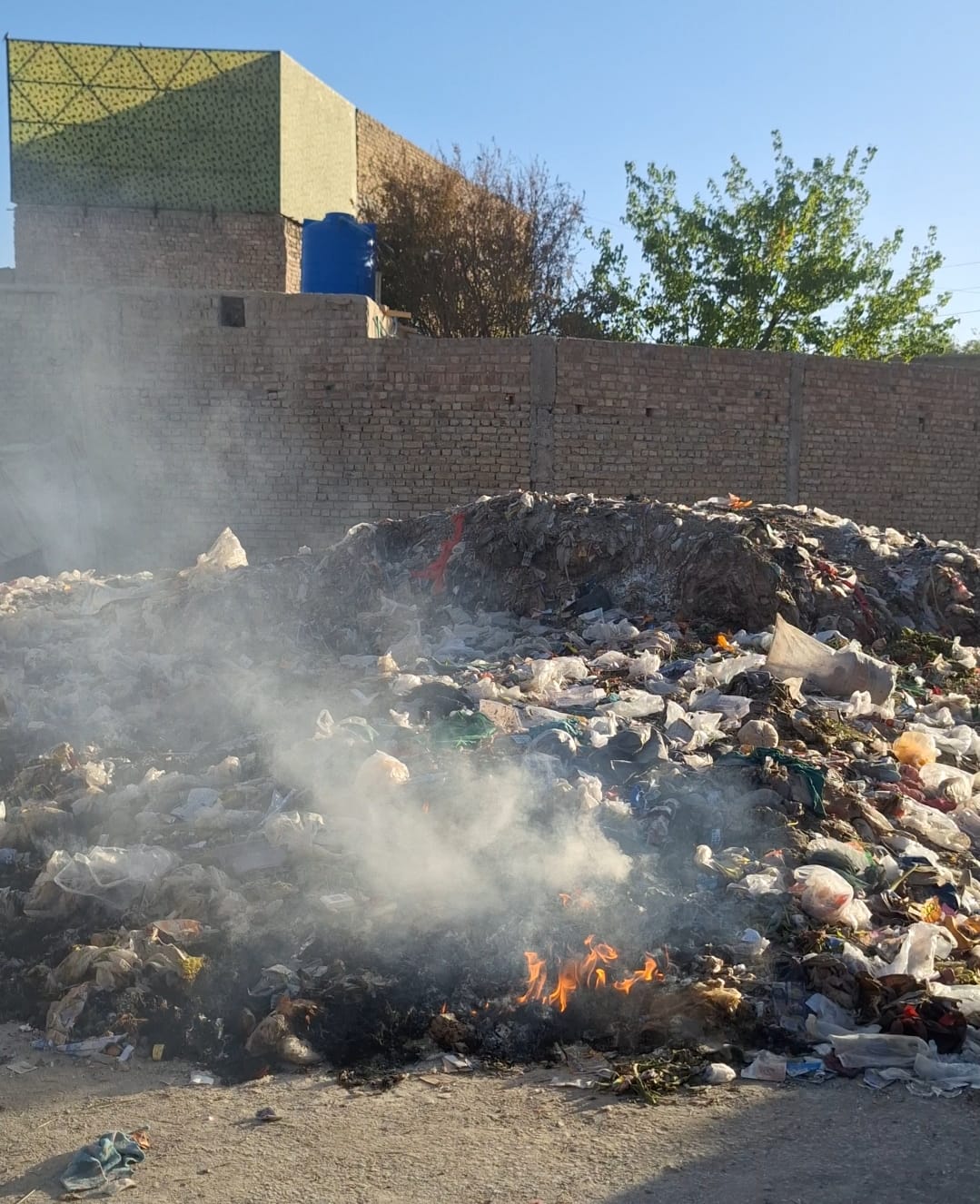
Quetta: On Sabzal Road in Quetta, a garbage dump has grown into a small hill. The air hangs heavy with toxic smoke, creating a suffocating atmosphere. Passersby struggle to breathe as burning plastic releases dangerous fumes fumes that residents are forced to inhale daily.
Near the site, we met Haji Rehman, who was setting fire to a pile of garbage outside his home. “We’ve filed multiple complaints, but no one comes to collect the trash,” he said. “Garbage blows int our home we have no choice but to burn it.” Rehman’s house is adjacent to the dump. “In the summer, people sleep outdoors, but the air becomes unbearable. We’re left with no option.”
Rehman’s story is far from unique. Across Quetta, burning waste has become an everyday practice. Once dubbed “Little London” during British colonial rule for its beauty and cleanliness, the city now struggles with even basic sanitation.
According to the Metropolitan Corporation Quetta (MCQ), the city generates around 1,600 tons of solid waste daily. However, only 600 tons are collected a figure backed by research from the University of Balochistan.
To address the crisis, the Balochistan government has launched the Solid Waste Management Project, approved by the Public-Private Partnership Board and the provincial cabinet. Known as “Safa Quetta”, the initiative aims to ensure sustainable waste collection and improve urban sanitation.
A Climate Vulnerable Region
Pakistan is officially ranked as the most affected country by extreme weather events in 2022, placing first in the 2025 edition’s annual ranking .
Historically (1993–2022), Pakistan is also featured among the most impacted nations. Despite its low carbon footprint, Pakistan faces frequent climate disasters floods, heatwaves, and erratic weather. Balochistan is particularly vulnerable. According to the Provincial Disaster Management Authority (PDMA), flash floods last year affected over 3,000 people across 16 districts of the province.
What Has the Environment Department Done?
Muhammad Ibrahim Baloch, Director General of the Environmental Department, said, “Our role is limited. We notify district administrations and the metropolitan authority of environmental hazards, but we lack enforcement powers.”
The growing waste problem is also fueling a public health crisis. Cases of hepatitis, malaria, and diarrhea are on the rise. “There are garbage dumps outside schools. There’s no proper system in place,” said Hamza Shafqaat, Commissioner of Quetta Division, at a recent press conference. “With methane gas building up in waste piles, Quetta is like a ticking time bomb.” He acknowledged that the MCQ lacks sufficient resources, estimating a need for an additional 4 billion rupees to effectively manage waste funds that are currently unavailable.
This shortfall led to the formal launch of the Safa Quetta Project, inaugurated by Deputy Prime Minister Mohammad Ishaq Dar and Balochistan Chief Minister Mir Sarfraz Bugti. “We stand with you we will fully support this initiative,” said CM Bugti at the launch ceremony.
Public Health and Air Pollution
According to the Health Effects Institute (HEI), air pollution was responsible for 8.1 million deaths globally in 2021. Millions more live with chronic illnesses caused by exposure to polluted air, placing a massive burden on healthcare systems.
A study by the Federal Ministry of Climate Change reveals that outdoor air pollution contributes to acute respiratory infections (ARI), heart disease, lung cancer, and chronic bronchitis. Indoor pollution—often due to garbage burning or unsafe cooking fuels—can lead to tuberculosis, cataracts, and low birth weights.
In 2019, an estimated 114,000 deaths in Pakistan were attributed to PM2.5, a harmful fine particulate matter, reducing average life expectancy by 2.7 years. Indoor air pollution caused another 55,000 deaths, mostly from lower respiratory infections.
Medical and Psychological Impact
Dr. Dawood, a practicing physician in Quetta, warned of long-term health damage. “Burning garbage releases toxic gases that harm the ozone layer and lead to skin diseases, cancer, and neurological conditions. Prolonged exposure causes asthma, bronchitis, and other chronic illnesses,” he said.
He called on authorities to enforce bans on waste burning and adopt comprehensive waste management policies. “An effective system will ease the burden on healthcare and save lives,” he added.
Mental Health and Air Pollution
Psychologist Shagufta emphasized that air pollution affects mental health as well. “Long-term exposure to smog and poor air quality increases anxiety, depression, and cognitive decline. It can also cause sleep issues, stress, and mood disorders,” she said.
Residents like Haji Rehman remain unaware of these consequences. “If the garbage was collected regularly, I wouldn’t be burning it,” he said.






